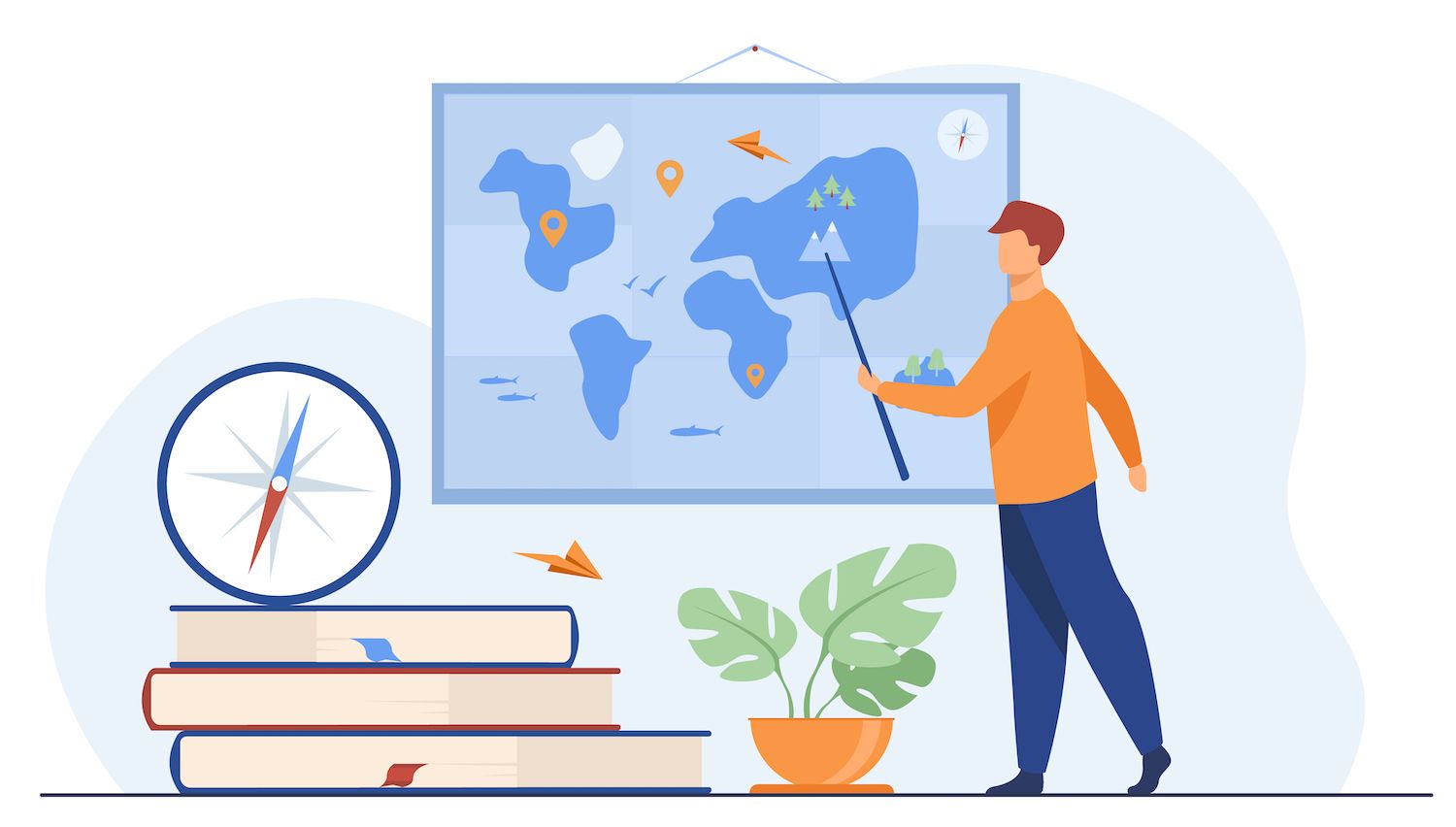What is an Community of Practice? (Definition + CoP Framework) |
A practice community is a useful way to organize a community within a profession. Communities of practice that are successful provide the members with a space to feel vulnerable and get support, as well as to learn and improve in a shared discipline.
In this post will discuss:
What is a practice community? is
Benefits of a CoP
Community of practice examples
A community of practice framework
((toc))
What is a community that practices?
Community of Practice (CoP) is a social group with common objectives, desires, hobbies or a professional area which members can share their stories, share notes, and share knowledge. Communities of practice can be utilized to exchange knowledge about best practices, knowledge, and ideas- helping the group to master something interesting together.
Communities of practice work because the theory behind it illustrates that learning isn't just about learning. Learning is fundamentally a interaction with others. So joining a learning community-even in adulthood-is a fantastic way to grow in something that's important to you. As a result, belonging to the CoP could improve the quality of your education and create a sense group identity.
We usually talk about a group of practice that requires three elements:
- Domain: The shared passion, interest, field and so on. that brings members together.
- Community: A group of people who come together to share ideas and experience.
- Training: The actions that the members of the team (e.g. discussions, conferences, Q&As, etc. )

What is a community of practice does
- Helps: A CoP offers support and encouragement that means you won't need to fight to get your education.
- Promotes shared experience: Group members share their experiences and help the learning of other members.
- Gives you new perspective: Hearing of how other people have dealt with your problems provides members with new ideas.
- Learn from other peoples' mistakes. Learning from our mistakes is a powerful skill. When you make a learning from mistakes made by others and mistakes, you are less likely to repeat them. repeating those errors.
- Gives you a sense of belonging A CoP can be a method to develop and perform identity, which in turn allows people to be part of a community.
- Developing a field: New methods, ideas and the synergy of a CoP will push fields forward
Theorie of learning situated and communities of practice
The idea of a community of practice was first introduced in the work of Jean Lave and Etienne Wenger in the 1991 publication on learning that is situated. The concept was linked to theory of practice and recognized the reality of learning in the context of our lives. It comes with interactions, power dynamics and all the complicated human interactions.
The work was also important for recognizing the fact that "peripheral participation"--when participants are first getting accustomed to a new environment--is an important part of learning too. As a result, the CoP isn't just important for core members, it can be really valuable for peripheral people too.
"Learners always participate in communities of practitioners and that the mastery of knowledge and skill requires newcomers to move toward full participation in the social practices of the community." Situated Learning is Jean Lave & Etienne Wenger

Community of practice example
- eXd Community: Gives educators the tools to design transformative, inclusive institutions and schools.
- Nurses Inspire Nurses Provides nurses the opportunity to meet in a secure environment, share their stories, and to learn from each other.
- The New Legal System: Learns people who work in various positions within the legal profession about how technology and racism can alter the law for better.
- Indie Birth Association: Brings midwives, doulas and women who are pregnant or birthing by providing resources and assistance for autonomous birth.
- Tuft the World: An online community that is free for new and experienced rug tufters, as well as fiber enthusiasts hoping to connect around the world.
- The PLANTSTRONG Community An online community offering paid classes and tools for helping people take control of their health, eat more vegetables and live an dietary and lifestyle that is plant-based.
- Academy to Innovate HR: Gives HR professionals the tools to expand their skill set and advance their career.
- Octo Members gives professionals from the UK financial sector with tools for development in their professional and personal lives.
Common domains that can be used to establish an organization of practices
- Healthcare
- Education
- Technology for information (IT)
- Human resources (HR)
- project management
- Marketing and communication
- Finance and banking
- Legal professionals
- Experts in sustainability
- DEI & Inclusion experts
- Social work
- Urban planning
- Non-profits
- Entrepreneurship

Learning in community = CoP
Many communities function as a group of practice with no awareness of the group members. Most traditional classrooms work like community of practice. They can also be voluntary groups. There's a good chance you were part of a group of practice and didn't even know that you were a part of it.
For example, could they be regarded as communities of practice?
- Groups of parents play: it gets the kids playing but the parents also share their joys and pain and also the things they are learning (hopefully the best way to help your baby to be asleep all evening! )
- Religious services: participating in religious service might mean the sharing of experiences and learning.
- Sport teams: participating as a member of a team sports the element of community to it. Get together, exchange strategies, and then play.
Each of these examples contains elements from a local community of practice. Each includes a domain, community, as well as actual practice associated. That means that a lot of the places we belong to could function as community of practice and we don't even know that it.
But often, we tend to think of communities of practice as a formal group, created and maintained intentionally. It's fine.

Online Communities of Practice
Communities of practice are hosted online or offline, but let's take a minute to consider online community of practice. Teaching has been completely changed by online learning platforms, blended learning and asynchronous teaching, communities have been transformed by the internet too.
This includes the practice communities. The process is becoming simpler than ever to find online community sites and make digital content. Therefore, it's no surprise that new communities on platforms are growing, both on the social networks and in dedicated software for community.
Here are some of the advantages to creating an online community of practice:
- Unite practitioners around the world The most niche community of practice can work when you collaborate with practitioners from around the world. Global perspectives are interesting as well.
- Utilize asynchronous communication group of practitioners: Though the communities of practice may meet live in a room, adding on things like online forums and discussions provides more chances for people who are busy to meet-without the requirement of meeting in real time.
- Real-time info sharing: No waiting for the next session of a community of practice. Participation online can happen whenever the urge strikes.
- Real engagement: Online CoPs often see more engagement because the structure and easy access (e.g. using a community app), makes it easy to get involved.
- Accessibility & Inclusion Communities of Practice online are more welcoming and accessible. Is it difficult to physically get to meetings? How much is it if the meeting costs a lot? Are meeting rooms accessible? What if parents have to pay for babysitting? There's an entire set of accessibility and inclusion issues which could be solved with online meetings.
- The convenience: And even when there aren't any accessibility issues, occasionally an online practice community can be more practical.
- The benefits of having different communities of practice that are located within your local area are great. But there can be the benefit of different online CoPs and hearing different opinions from across the globe or different approaches of other countries.

community of practice framework
Although there isn't a right way to build a community of practice, the community of practice framework will help you start a new CoP or revive an existing one.
1. Determine the Purpose and Objectives
Every practice community includes a rallying call with a specific purpose behind it. This is the one thing that members are overly excited about and support.
If you're looking to establish a group of practices, a strong Large Objective is the ideal place to start.
Select a Big Goal that goes further than the structure of your meeting. "We have meetings on Tuesdays for discussion about counseling" will not cut it.
You can use the three parts of a community of practice above to break this down:
- Domains: Which areas or fields of knowledge will this community be covering?
- Community: Who are in the community? What type of people will be gathered?
- Training: What types of activities will the community do?
If this seems too easy, that's because it's. The purpose of the constituting reason doesn't need to be difficult. The simpler the better.

2. Choose the Right Members
Every community has an Ideal member. It's the person who most needs to be in and is the most effective in contributing to.
Build your community of practice with an ideal member. It's an excellent idea to conduct interviews with some potential members. Discover their issues. Discover what they would like to understand. Find out what they'd show up with to discuss.
A few brief interviews could be a great assistance in the creation of an effective CoP.
However, sometimes it's not required. Many communities of practice grow organically from established communities, conferences live events and so on. If you've got a community of Ideal Participants that have formed organically, you might be in the right place.
3. Leadership
Establish your leadership structure a community of practice-if applicable. For large CoPs it could be an executive team or a board. For smaller communities it might just mean assigning a regular chairperson.
If you're CoP direction is to be governed by a team You could set up regularly scheduled meetings for the team and establish goals.
But do try to consider keeping your leadership agile and fluid. Communities of practice can be really valuable without complicated plans for leadership. And the energy of leadership tends to be best spent on the CoP in itself, not the administrative burdens of leadership.
4. Establish a platform
Your CoP needs to meet somewhere and somehow.
If the meeting will be in person, this may be arranging a meeting time and place. It could include:
- Around a regular gathering or occasion (e.g. an industry meeting)
- Somewhere that fits the CoPs timetable (e.g. An office CoP might meet at the lunch break)
If you're having a meeting on the internet it is necessary to determine how to organize and plan Asynchronous and/or Synchronous meetings as well as conversation.
As an example, you could consider:
Which is the best option for your family and community? It depends. If you've done the exercise of identifying your ideal partner You'll get a good idea of their needs and their preferences when it comes to joining. Find something that fits.
5. Develop Guidelines and a Structure
Most communities benefit from having community guidelines to define the basic rules and standards. While it's tempting to think of setting rules as being heavy handed however, they can help create a trusting environment that allows people to feel secure and participate--IF they are well-communicated and implemented. If your community is online it is important to include moderation in addition.
If people are secure from harassment, bullying, mocking, etc. In turn, they're more likely to be able to contribute to the community in a positive way.
Another thing that you could create is a group structure. Every community of practice is different, but here are some examples of structural aspects you could think about putting for:
- Regular set meetings
- Monthly expert guests
- Training sessions and workshops
- Task forces from working groups
- Open discussion forums
- Community "listening"
- Mentorship or buddy programs
- Sessions for feedback
- Themes for quarterly or monthly themes
- Skill-learning sessions
- Events for social and networking

6. Launch and Promote
When everything is set, you can launch the community of the practice. Think about a live or virtual launch to bring the community to one place and build excitement. It could include the presence of guest speakers or even a space for networking. The launch should provide the value that makes the event a hit, but will set the stage for the future events.
How you plan to market the practice of a community is contingent on the goals you have set. If you're looking to expand, here are some ways to market your community of practice:
- Directly invite people (especially the Ideal members you have talked to).
- Start a free webcast or event.
- Ask an industry professional to give a talk.
- Email existing lists or subscriber lists.
- Advertise in trade magazines or on relevant websites.
- Have a booth or presence at a relevant conference.
7. Create a database of knowledge
Certain communities of practice choose to build a knowledge database-some way of collecting and sharing the knowledge. This could be through shared information, course notes, content or even a guide shared.
A group of practice could be a source of new ideas as well as new ways to solve problems A knowledge database is ideal to:
- Creating an "institutional memory"
- Refreshing new members on past discussions
- Using prior work and sessions to address issues that occur

8. Collect feedback
When you're hosting a community of practice, it is important to gather opinions from your members regarding how things are going and what's not. The best way to collect feedback is by anonymous means, particularly in the case of an extensive CoP.
You can:
- Use a survey mechanism like SurveyMonkey to gather anonymized feedback.
- Utilize the features of platforms (e.g. polls and questions) to gather feedback.
- Create member interviews or feedback sessions that are informal.
- Get feedback from live sessions.
9. Celebration and recognition
Some communities of practice choose to recognize the best in their fields through awards and other recognition. This could mean recognizing the members of the group for their efforts. It might also involve identifying a company or organization within the community that has done outstanding work, and then recognizing them.
It is the idea that as you attain proficiency and excellence in the subject, recognizing that excellence inside your own group as well as out in the world is an excellent opportunity to acknowledge individuals and organizations working hard in your field.

10. Grow and develop
Any type of thriving community needs to evolve and grow. Goals change. The members evolve and develop. Members join new members with fresh visions.
A community of practice can and should evolve with your practice, constantly evolving to reflect the requirements of its members. it.
Are you ready to begin?
If you're eager to establish your own community on the internet for practice, then give Mighty an opportunity! Mighty is a one-stop community platform with discussion forums, built-in virtual events, members' profiles, and courses as well as managing tools. It also comes with Mighty Co-Host(tm) which is an AI community-based cohost that places your growth on autopilot-helping to increase human creativity, without substituting it.
Try it for without cost for 14 days with no credit card required.
